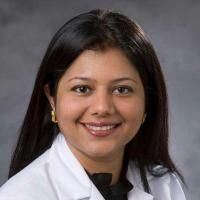Implementing a Continuous Quality Improvement Program in a High-Volume Clinical Echocardiography Laboratory: Improving Care for Patients With Aortic Stenosis.
Date
2016-03
Journal Title
Journal ISSN
Volume Title
Repository Usage Stats
views
downloads
Citation Stats
Attention Stats
Abstract
BACKGROUND: The management of aortic stenosis rests on accurate echocardiographic diagnosis. Hence, it was chosen as a test case to examine the utility of continuous quality improvement (CQI) approaches to increase echocardiographic data accuracy and reliability. A novel, multistep CQI program was designed and prospectively used to investigate whether it could minimize the difference in aortic valve mean gradients reported by echocardiography when compared with cardiac catheterization. METHODS AND RESULTS: The Duke Echo Laboratory compiled a multidisciplinary CQI team including 4 senior sonographers and MD faculty to develop a mapped CQI process that incorporated Intersocietal Accreditation Commission standards. Quarterly, the CQI team reviewed all moderate- or greater-severity aortic stenosis echocardiography studies with concomitant catheterization data, and deidentified individual and group results were shared at meetings attended by cardiologists and sonographers. After review of 2011 data, the CQI team proposed specific amendments implemented over 2012: the use of nontraditional imaging and Doppler windows as well as evaluation of aortic gradients by a second sonographer. The primary outcome measure was agreement between catheterization- and echocardiography-derived mean gradients calculated by using the coverage probability index with a prespecified acceptable echocardiography-catheterization difference of <10 mm Hg in mean gradient. Between January 2011 and January 2014, 2093 echocardiograms reported moderate or greater aortic stenosis. Among cases with available catheterization data pre- and post-CQI, the coverage probability index increased from 54% to 70% (P=0.03; 98 cases, year 2011; 70 cases, year 2013). The proportion of patients referred for invasive valve hemodynamics decreased from 47% pre-CQI to 19% post-CQI (P<0.001). CONCLUSIONS: A laboratory practice pattern that was amenable to reform was identified, and a multistep modification was designed and implemented that produced clinically valuable performance improvements. The new protocol improved aortic stenosis mean gradient agreement between echocardiography and catheterization and was associated with a measurable decrease in referrals of patients for invasive studies.
Type
Department
Description
Provenance
Subjects
Citation
Permalink
Published Version (Please cite this version)
Publication Info
Samad, Zainab, Stephanie Minter, Alicia Armour, Amanda Tinnemore, Joseph A Sivak, Brenda Sedberry, Karen Strub, Seanna M Horan, et al. (2016). Implementing a Continuous Quality Improvement Program in a High-Volume Clinical Echocardiography Laboratory: Improving Care for Patients With Aortic Stenosis. Circ Cardiovasc Imaging, 9(3). 10.1161/CIRCIMAGING.115.003708 Retrieved from https://hdl.handle.net/10161/15611.
This is constructed from limited available data and may be imprecise. To cite this article, please review & use the official citation provided by the journal.
Collections
Scholars@Duke

Zainab Samad
Dr. Zainab Samad is chairwoman of the Department of Medicine at Aga Khan University (AKU) in Pakistan and currently serves as an Adjunct Associate Professor of Medicine at Duke University.
She attended Medical School at the Aga Khan University Medical College in Karachi, Pakistan and thereafter completed her residency training in Internal Medicine and fellowship in Cardiology at Duke University Medical Center in Durham, North Carolina. Additionally, she completed advanced training in cardiovascular imaging, specifically in clinical echocardiography, cardiac MRI and SPECT-myocardial perfusion imaging. She is also trained in quantitative methods with a Master of Health Sciences in Clinical Research degree from the National Institutes of Health- Duke Clinical Research Training Program. She served on faculty in the Division of Cardiology, Department of Medicine for nine years before accepting the position at AKU in 2018. She resides full-time in Karachi.

John Kevin Harrison

Joseph Andrew Kisslo
Dr. Kisslo's research has centered around the development and initial application of new ultrasound imaging devices. Focussed principally on morphologic diagnosis in the early years, the work has become progressively more physiologic in it's orientation.
After more than two decades there are now 300 original research papers, several textbooks and other materials. Dr. Kisslo has distinguished himself as the first to use phased array ultrasound imaging in the human body and, accordingly, was the first to describe most of the disease for which the technique is now commonplace. He was very early into the applications of Doppler color flow imaging and transesophageal imaging with ultrasound. He has served as an officer or on the Board of a variety of national and international bodies. He was one of the first President's of the American Society of Echocardiography. He reviews in all aspects of cardiac imaging, but principally echocardiography.
Over the past 15 years he has also had a keen interest in medical economics and has served on various professional and governmental boards in describing medical costs and dealing with medical economics. More recently, he has taken interest in adult re-education through remote learning means (telemedicine) and has become the Clinical Director of Telemedicine at Duke. He is Executive Producer of the world's largest telemedicine program (Echo in Context) which has run for the past 14 years. This was the first educational event to circumnavigate the globe live.
He is a frequent scientific and motivational lecturer to scientific organizations and industry. He serves as advisor to several governmental and industrial organizations.
Key words: Echocardiography, cardiac imaging, medical reimbursement, telemedicine, adult re-education.

Pamela Susan Douglas
Pamela S Douglas MD is the Ursula Geller Professor of Research in Cardiovascular Diseases in the Department of Medicine at Duke University and Director of the Multimodality Imaging Program at Duke Clinical Research Institute. During her 30+ years of experience she has led several landmark multicenter government studies and pivotal industry clinical trials along with outcomes research studies. She is renowned for her scientific and policy work in improving the quality and appropriateness of imaging in clinical care, clinical trials and registries and through development and dissemination of national standards for imaging utilization, informatics and analysis. She has been among the pioneers in a number of areas including heart disease in women, sports cardiology, and cardio-oncology. Dr. Douglas’ wealth of experience includes authorship of over 400 peer reviewed manuscripts and 30 practice guidelines, and service as the President of the American College of Cardiology, President of the American Society of Echocardiography, and Chief of Cardiology at both the University of Wisconsin and Duke University. She has also previously served on the faculties of the University of Pennsylvania and Harvard University. She currently serves on the External Advisory Council of the National Heart, Lung and Blood Institute and the Scientific Advisory Board of the Patient Advocate Foundation.
Unless otherwise indicated, scholarly articles published by Duke faculty members are made available here with a CC-BY-NC (Creative Commons Attribution Non-Commercial) license, as enabled by the Duke Open Access Policy. If you wish to use the materials in ways not already permitted under CC-BY-NC, please consult the copyright owner. Other materials are made available here through the author’s grant of a non-exclusive license to make their work openly accessible.
